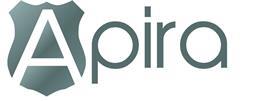An ambitious project in London North West University Healthcare Trust is working to improve patient care by digitising the organisation’s entire active caseload of records
By 2019, London North West University Healthcare Trust, despite being well into the 21st century, was still saddled with a vast collection of paper medical records, which are no more conducive to efficient medical care than they are to the operation of any business.
The ambition of the #MedRecsOnline project was to digitise their entire active caseload of records over 2021-2022 and make them available 24x7 via a web-based application.
With the support of project management from Apira, Electronic Document Management software (MediViewer) from IMMJ, and professional scanning services from Restore Ltd, the MedRecsOnline project was announced in late 2019 by CIO Robbie Cline.
Sponsored by
The benefits accrued from this massive change are considerable: 1,500m2 of vital floor space cleared, over 70 whole time equivalents released from the Medical Records department, and a big dent knocked into the trust consumables spend. This is to say nothing of the experience for clinicians and patients. As CCIO Nick Ferran said, “For patients this means that delays to their care and cancellation or re-booking of appointments due to missing notes is now a thing of the past.”
LNWH is now a transformed environment; an entirely new workplace for clinical and administrative staff alike and (more) ready for the looming challenge of the Cerner project in autumn 2023.
With over a million records spread across the trust’s three sites, all requiring scanning or permanent off-site archiving, the scale of the task was daunting. However, thanks to the tremendous efforts of trust staff, software and scanning suppliers, and Apira project managers, the IMMJ EDM solution MediViewer has now been deployed enterprise-wide, with 160,000 legacy records now scanned. These are now accessible from any trust PC, and the remainder of the libraries are now in permanent off-site storage for eventual destruction.
Currently, any new paper content generated is digitised within 48 hours, enabling the trust to bridge the gap between the old world and the upcoming Cerner EPR implementation.
Paper records in healthcare
It’s uncontroversial to observe that paper records are archaic, but the scale of the operational burden they represent is often unappreciated.
Paper files are slow and cumbersome to navigate, especially as they can be thousands of pages long. Acres of precious hospital floorspace must be given over to shelving: vast libraries of millions of files, and dozens of staff to manage them. Paper is fragile, degrading over time, and can be damaged in a myriad of ways in a hospital. Even intact, coordinating that many physical objects is a constant logistical challenge: pages, files, or whole filing cabinets of files go missing so often that, ironically, an unavailable record is so commonplace it’s unnoteworthy to clinicians.
All of which is to say that any trust would benefit from records that are available anywhere, any time, by any number of clinicians, in a readily searchable format.
Evolving scope and covid-19
There is another important risk associated with paper records that often went overlooked: physical objects made of absorbent material that move widely around a hospital represent a significant infection control risk.
As the pandemic lockdowns began it became abundantly clear that remaining paper-based was not going to be feasible for the trust. Stringent measures were required to control the nosocomial spread of covid-19, and constant movement and handling of patient records presented an unacceptable infection control risk. Moreover, these notes were only available where clinical staff were physically located. #MedRecsOnline could resolve both issues.
However, this benefit would come with additional challenges: deploying the system, by necessity largely remotely, during the worst pandemic in over a century.
Sticking the landing
Despite these challenges, with the backing of senior trust leadership the project team went ahead with the planned rollout.
Consideration had to be made to accommodate the pandemic restrictions: coordination and organisation had to be performed almost exclusively remotely, screening and quarantine plans for notes were also implemented to reduce the risk of infection of for MedRecs and Restore staff. And a more robust support model developed with multiple avenues to access training and support without relying too heavily on in-person contact. The scanning plan was also adjusted to rely far more heavily on inpatient notes than the more traditional outpatient model, due to the reduced activity in clinics.
This model produced tremendous results. At time of writing almost the entire casenote collection has been either scanned or archived, and MediViewer is now the primary source of information for clinicians delivering safe and effective care in North West London.
Medical records underpin every clinical decision. If notes are incomplete, unclear or missing, care suffers drastically; this is inevitable when using paper records in a care setting. It is the hope of all those involved in the MedRecsOnline project that those trusts who have not tackled their paper problem would consider what’s possible with a well implemented EDM project.

























